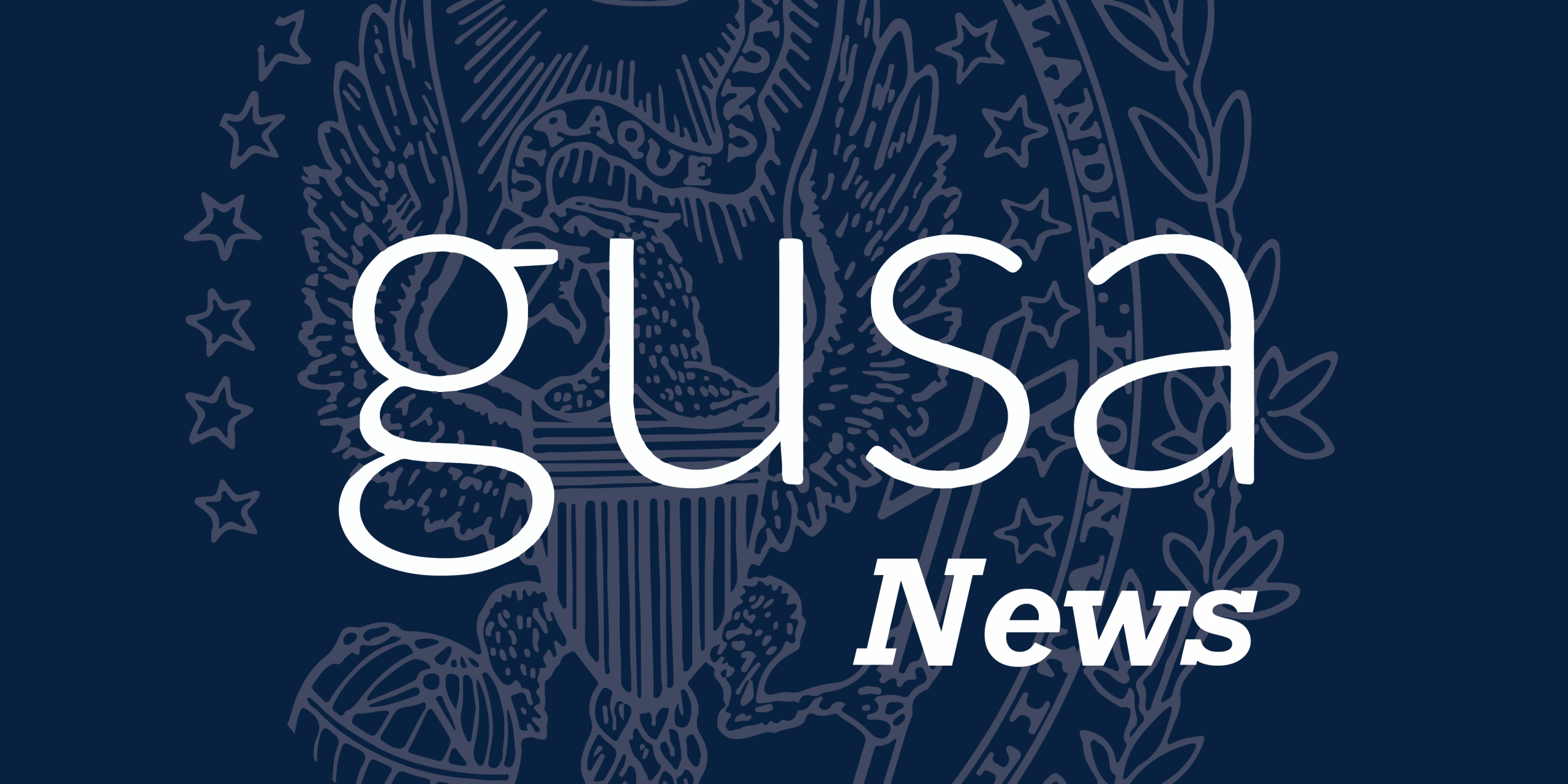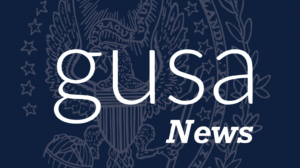As of Feb. 6, there are now four tickets campaigning in the GUSA Executive election. Thomas Leonard (COL ’23) and Nirvana Khan (SFS ’24), Kole Wolfe (SFS ’24) and Zeke Ume-Ukeje (COL ’24), and Marcella Wiggan (COL ’23) and Otice Carder (COL ’23), are all in the race for GUSA president and vice president. Additionally, the Heckler, a student-run satire publication, is running Hiruni Herat (COL ’23) and David Edwards (COL ’24) as candidates for the executive.
Voting begins Feb. 10 and ends Feb. 12. The election will replace the current administration of GUSA President Nile Blass (COL ’22) and Vice President Thomas Leonard. Leonard was sworn in last December following Nicole Sanchez’s (SFS ’22) resignation.
Both the Leonard/Khan and Wolfe/Ume-Ukeje tickets have come under criticism during their campaigns. Wiggan and Carder, who prefer to be called by their first names, Marcella and Otice, joined as a write-in ticket late Sunday night. Because it is too late for their ticket to be added to the ballot, students will need to write in “MO” to vote for their ticket. According to a GUSA statement on Instagram on Feb. 5, this is the first time the write-in option will be available in several years. The election will utilize ranked-choice voting.
Leonard and Khan are running on a platform that focuses on dining choice, campus safety, mental health equity and access, and racial justice. Both Khan and Leonard have previously served in GUSA: Leonard as vice president and Khan as chair of the policy and advocacy committee. They are running heavily on their previous experience in GUSA, which includes securing a meal plan exemption for students and helping to revitalize the GU272 advocacy campaign.
Leonard and Khan plan to continue their work by advocating for student voting power on the Georgetown board of directors; calling for the development of Latinx, Asian American, and Latinx studies; and pushing for the creation of AAPI affinity housing. Similarly, they hope to continue current efforts surrounding equitable dining options and on-campus safety, especially after the extension of a mandatory meal plan and a string of dorm intrusions last fall.
“We bring knowledge from the executive, we bring knowledge from the Senate, we bring perspectives as a transfer student,” Leonard said. “Our platform is reflective of the conversations that we’ve been able to have with student organizations and student leaders.”
However, Leonard and Khan have received pushback from some community members and former members of GUSA. Critics have taken to social media to say the campaign misappropriated credit for CARES act money, grocery grants, and advocacy for summer housing.
Former GUSA senator Eric Pérez (COL ’23) made clear that while GUSA is by nature a collaborative environment, some achievements on the Leonard/Khan campaign website felt to them as direct appropriation of their work. Specifically, Pérez claims that Leonard and Khan were uninvolved in organizing to secure emergency summer housing for low-income students in May 2021. Pérez, on the other hand, was extensively involved—including in drafting a letter to the administration to call for emergency housing during the COVID-19 pandemic.
“Typically in GUSA there is so much coalition work that it is hard to say who did what, especially when maybe five people are working on something,” Pérez said. “It’s completely different in this case, I know because I wrote that statement.”
The Leonard/Khan campaign has since met with concerned students, changed their website, and issued a public apology and statement on their Instagram.
“We concluded that it is important to first and foremost reaffirm our commitment to serving marginalized communities, as well as to genuinely apologize before taking any further action during this campaign season,” the statement read
While the Leonard/Khan campaign has also come under fire for not connecting with student organizations, they have met with some community members and groups, including the international students’ chair, Muslim Student’s association, the transfer council, and AASA.
Wolfe and Ume-Ukeje, the second ticket on the ballot, are two sophomores, neither of whom have been in GUSA. They are running on a platform of improving mental health access on campus, revitalizing the GUSA reform/restructure referendum, and addressing what they see as low engagement with GUSA by the wider student body.
“We felt that the student association is supposed to represent as many students as possible, and right now a lot of students aren’t very interested in GUSA whatsoever,” Ume-Ukeje said.
Wolfe also remarked that this disengagement weakens GUSA’s advocacy power in negotiating with the administration.
“Administration is aware that GUSA doesn’t represent the views of the wider student body and that’s why they’ve had trouble getting things passed the administration,” he said.
Wolfe and Ume-Ukeje also support an endemic approach to COVID-19 on campus policies and want the campus to be opened up. When asked about issues like Title IX on campus, the Wolfe/Ume-Ukeje campaign shared that while not familiar with these issues, they were open to learning more about them.
The campaign has faced criticism about a lack of prior involvement with and knowledge of student advocacy efforts.
Ume-Ukeje said he was currently in a class about Georgetown’s history and strongly supported the GU272 referendum. Neither Ume-Ukeje nor Wolfe, however, has attended any of the advocacy events surrounding GU272.
“I have not personally been involved with the referendum work, but I do think that GUSA is a student organization that should be involved with them, and if we were to be elected we would love to continue the work of the previous administration,” Wolfe said.
Current GUSA president Nile Blass expressed concerns about candidates unaware of current and past advocacy efforts.
“It’s very disingenuous to mention the GU272 on your platform when you’re not a part of any of the chats, or Groupmes that are attached to that activism and you didn’t even bother to attend our first event of the year where descendants and advocacy team members were featured in their work,” Blass said.
Wolfe and Ume-Ukeje have come under further scrutiny for a possible campaign event, culminating in a formal warning from the Election Commision. According to a GUSA statement, a formal complaint was lodged after a video emerged of an event involving alcohol with a Wolfe/Ume-Ukeje sign made and displayed on-location. GUSA election laws prevent candidates from campaigning in the presence of alcohol, or violating a $300 expenditure limit. Because there is no evidence either candidate were at the event themselves, the Election Commission did not suspend their campaign but cut their speaking time during the GUSA town hall.
In an interview with the Voice, the candidates denied the accusations. “We thought that their statement on the GUSA and Election Commission accounts were completely out of line and slandered not only our campaign’s name, but also our image as individuals,” Ume-Ukeje said. “So we were not very happy with that. Especially after our cooperation—to a certain extent—with them.”
Reacting to the criticisms of both campaigns, Marcella and Otice joined the election three days before voting begins. Marcella has no GUSA experience, but Otice was recently sworn in as a senator for the class of 2023.
Marcella has been involved with MOSAIC, AASA, and the GUSA restorative justice team. Otice is a transfer student who has past organizing experience, such as contributing to the walkout and broader movement to change the name of Washington and Lee University.
According to their campaign website, Marcella and Otice hope to decentralize GUSA to be more accessible to student advocates. “Our ‘newness’ provides a unique perspective and opportunity for positive growth and re-evaluation,” their campaign goals read.
They aim to prioritize centering marginalized voices as well as the current and ongoing efforts of activists around Georgetown’s campus.
“We want to bring in a lot of people and a lot of diverse student groups,” Marcella said. “We want people to not have that idea that GUSA is ‘government’ but have it be more integrated in the community and feel accessible to your average Georgetown student.”
In keeping with this mission, they have reached out to a number of students and organizations in the short time since joining the race. This list includes AASA, GU Pride, Mosaic, MEChA, students involved in the senate’s accessibility and student advocacy teams, and the GU Coalition for Workers Rights.
They hope to continue work, begun under the Blass/Sanchez administration, to decentralize GUSA by dissolving the Senate.
“That can look like different things. Even if it’s not like abolish GUSA right now, it’s like starting to phase out the Senate and dissolve the culture of professionalism–like using first names,” Marcella said.
Their campaign is also focused on addressing issues such as the double punishment of students by the university when students are disciplined and have their financial aid impacted, dismantling the punitive structures within GUSA, and making restorative justice practices available for Title IX processes.
On Feb. 7, GUSA held a presidential town hall debate. A vice-presidential debate will occur on Feb. 8 at 8:30 p.m.
Correction: A previous version of the article did not describe the full nature of the alleged Wolfe/Ume-Ukeje campaign violation, and has been amended to reflect that neither candidate was proven to be physically present at the violating event and thus did not incur campaign suspension by the Election Commission. Additionally, after the publication of this article, the Election Commission revised its voting system to allow for ranked-choice voting.





